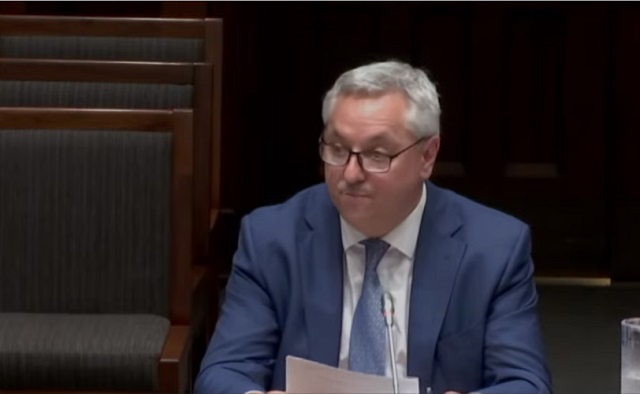Opinion
Minister LaGrange Protected Charter And Home Schools Yet Is Being Targeted For Her Nomination

Article submitted by Wyatt Claypool of the National Telegraph
The performance of a lot of Alberta UCP Cabinet Ministers has left a lot to be desired over the past couple of years, but the one Minister that absolutely does not describe would be Red Deer-North MLA Adriana LaGrange.
LaGrange has been genuinely doing amazing work as Education Minister, helping to reform the public education system, and promoting the growth of the charter and homeschooling systems with more support typically monopolized by the public system.
She has also helped focus classrooms back onto straightforward teaching of mathematics and English in grades K-6, as well as started cutting politics out of the social studies curriculum, which she frequently took note of after being appointed Education Minister in April of 2019.
It is concerning that anybody would think that these were appropriate questions for a Gr. 10 Social Studies test. Alberta has a great story to tell about our responsible energy sector, and educators should not be attacking it. We'll get politics out of the classroom. #abed #ableg pic.twitter.com/GXFMNBxnXO
— Adriana LaGrange (@AdrianaLaGrange) November 28, 2019
After The National Telegraph contacted both Parents For Choice In Education and the Alberta Parents Union both pro-school choice and education reform groups had almost nothing but good things to say about Minster LaGrange.
Frankly, an even bigger endorsement of Minister LaGrange’s work is just how much the NDP and left-wing Alberta Teachers Association (ATA) hate her.
Regarding the latter, despite how hostile the ATA has been towards the UCP government and the reforms made to the education system, Minister LaGrange was able to wrangle the ATA into signing a new collective agreement with the province while she simultaneously took away the ATA’s arbitrary power to discipline teachers and gave the responsibility back to the province.

This all raises the question of why someone would want to challenge LaGrange for her nomination.
Well, it seems that certain political organizations new to the scene simply want their people in the legislature.
That organization is Take Back Alberta, which originally campaigned to remove Premier Jason Kenney in the leadership review vote has now moved on to trying to take out anyone associated with Kenney’s government, or at least anyone who hasn’t endorsed their preferred UCP leadership candidate.
Ironically many of the people backing Take Back Alberta are the same political insiders that either helped to install Kenney as UCP leader back in 2017, as well as Erin O’Toole in 2020, and who have contributed to the feeling of alienation within grassroots in conservative politics in Canada.
Take Back Alberta is backing a man named Andrew Clews whose claim to fame is founding an Alberta anti-mandate group called Hold The Line (with only 1,000 followers), and predictably his pitch to UCP members in Red Deer North is that LaGrange is not pro-freedom enough.
In an interview with True North, Clews said:
Even to date, I have not heard (LaGrange) voice any type of support for the rights and freedoms that we once had as Albertans, I’m not impressed with how our government has handled the pandemic, how they have so casually given rights and taken rights away from Albertans…we need to elect leaders to go to the Alberta legislature and stand for freedom.
While most people would agree the UCP government did a poor job standing up for Albertan’s civil liberties over the past two years, it would also be wrongheaded to think Minister LaGrange had much to do with it.
Yes, LaGrange did not stand against Kenney in the strong and principled manner that MLA Drew Barnes did, and while what Barnes did was highly commendable and important, LaGrange was not exactly a big supporter of lockdowns and mandates. She mostly just stuck to her ministerial work while Kenney and other members of his cabinet hard-charged on mandates.
Clews himself even tactically admits that LaGrange never publicly supported the lockdowns and mandates by focusing his criticism on the fact she was not publicly against them, not that she was publicly in favour of them.
On the issue of education, Clews basically endorses the job Adriana LaGrange has been doing as Education Minister.
Clews stated that:
We need to reform the funding for our school system so that the funding goes to the child and follows the child as opposed to going automatically into the public school or Catholic school system…
Frankly, unless Andrew Clews believes that LaGrange should be magically reforming the education system overnight, she is doing exactly what he said he wants to be done, but seeing as she is not the premier, she has had to move slower than she would want to.
Part of LaGrange’s support for charter schools has been making more funds available to them in order to reflect the increase in the proportion of students attending charter schools.
We need to actually evaluate our elected officials on their overall performance and not nitpick on one specific aspect of their record in order to justify throwing them out of office.
I, (the writer of this article), was strongly against lockdowns and mandates, and the reporting I did here at The National Telegraph contributed significantly to protecting unvaccinated workers, as well as getting Dr. Verna Yiu removed from her position as the CEO of AHS for incompetence in the management of ICU beds.

Former AHS CEO Dr. Verna Yiu.
With that in mind, I don’t take much issue with anything LaGrange did or did not say over the last two years. She would be close to the bottom of the list of people I’d hold responsible for the lockdown regime, and on issues regarding education, I’d say her record, for the most part, is unblemished.
Very few politicians could ever be reelected if Adriana LaGrange was someone deemed unworthy of continuing her work in government, but the people behind organizations like Take Back Alberta do not seem to care about any limiting principles. Their goals seem to be more based on political ambition than anything truly connected to the conservative grassroots.
If I was a UCP member in Red Deer North I would be voting to renominate Education Minister Adriana LaGrange.
———
Details on the Red Deer North UCP nomination vote are listed below:
– August 18, 2022
– 11:00am-8:00pm
– The Pines Community Hall
– 141 Pamely Avenue
Fraser Institute
Bill Maher is right about Canadian health care
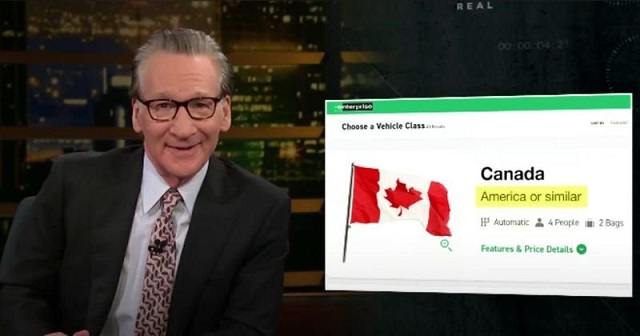
From the Fraser Institute
Recently, popular American comedian and talk show host, Bill Maher, took aim at some of Canada’s public policy failings in one of his monologues. In entertaining fashion, Maher highlighted our high housing costs, unemployment rates and “vaunted” health-care system.
Indeed, citing work published by the Fraser Institute, he explained that after adjusting for age, Canada spends 13.3 per cent of our economy on health care (2020), the highest level of spending by a developed country with universal coverage that year. And that Canada has some of the poorest access to timely appointments with family doctors when compared to our peers.
Unfortunately, while that’s where his segment on health care ended, the bad news for the Canadian system doesn’t stop there.
On top of Canada continuing to be one of the most expensive universal health-care systems in the world, we get little in return when it comes to both available medical resources and wait times. For example, among high-income countries with universal health care, Canada has some of the lowest numbers of physicians, hospital beds, MRI machines and CT scanners.
And in Canada, only 38 per cent of patients report seeing a specialist within four weeks (compared to 69 per cent in the Netherlands) and only 62 per cent report receiving non-emergency surgery within four months (compared to 99 per cent in Germany).
Unfortunately, wait times in Canada aren’t simply long compared to other countries, they’re the longest they’ve ever been. Last year the median wait for a Canadian patient seeking non-emergency care reached 27.7 weeks—nearly three times longer than the 9.3 week-wait Canadians experienced three decades ago.
This raises the obvious question. How do other countries outperform Canada’s health-care system while also often spending less as a share of their economies? In short, their approach to universal health care, and in particular their relationship with the private sector, departs drastically from the approach here at home.
Australia, for example, partners with private hospitals to deliver the majority (58.6 per cent) of all non-emergency surgeries within its universal health-care system. Australia also spends less of its total economy (i.e. GDP) on health care but outperforms Canada on every measure of timely care.
Even with restrictions on the private sector, Canada has some limited experience that should encourage policymakers to embrace greater private-sector involvement. Saskatchewan, for example, contracted with private surgical clinics starting in 2010 to deliver publicly-funded services as part of a four-year initiative to reduce wait times, which were among the longest in the country. Between 2010 and 2014, wait times in the province fell from 26.5 weeks to 14.2 weeks. After the initiative ended, the province’s wait times began to grow.

More recently, Quebec, which has some of the shortest wait times for medical services in the country, contracts out one out of every six day-surgeries to private clinics within the publicly-funded health-care system.
Maher’s monologue, which was viewed by millions online, highlighted the key failings of Canada’s health-care system. If policymakers in Ottawa and the provinces want to fix Canadian health care, they must learn from other countries that deliver universal health-care at the same or even lower cost, often with better access and results for patients.
Author:
Censorship Industrial Complex
Now We Are Supposed to Cheer Government Surveillance?

From the Brownstone Institute
BY
The powers that be are leading us from the Declaration of Internet Freedom from simpler times (2012), to the Declaration on the Future of the Internet. Do we need to say more than the word “freedom” has been left out of the future?
They are wearing us down with shocking headlines and opinions. They come daily these days, with increasingly implausible claims that leave your jaw on the floor. The rest of the text is perfunctory. The headline is the takeaway, and the part designed to demoralize, deconstruct, and disorient.
A few weeks ago, the New York Times told us that “As It Turns Out, the Deep State Is Pretty Awesome.” These are the same people who claim that Trump is trying to get rid of democracy. The Deep State is the opposite of democracy, unelected and unaccountable in every way, impervious to elections and the will of the people. Now we have the NYT celebrating this.
And the latest bears notice too: “Government Surveillance Keeps Us Safe.” The authors are classic Deep Staters associated with Hillary Clinton and George W. Bush. They assure us that having an Orwellian state is good for us. You can trust them, promise. The rest of the content of the article doesn’t matter much. The message is in the headline.
Amazing isn’t it? You have to check your memory and your sanity. These are the people who have rightly warned about government infringements on privacy and free speech for many decades dating way back.
And now we have aggressive and open advocacy of exactly that, mainly because the Biden administration is in charge and has only months to put the final touches on the revolution in law and liberty that has come to America. They want to make it all permanent and are working furiously to make it so.
Along with routine warrantless surveillance, not only of possible bad guys but everyone, comes of course censorship. A few years ago, this seemed to be intermittent, like the biased and arbitrary actions of rogue executives. We objected and denounced but generally assumed that it was aberrant and going away over time.
Back then, we had no idea of the scale and the ambition of the censors. The more information that is coming out, the more the full goal is coming into view. The power elite want the Internet to operate like the controlled media of the 1970s. Any opinion that runs contrary to regime priorities will be blocked. Websites that distribute alternative outlooks will be lucky to survive at all.
To understand what’s going on, see the White House document called Declaration on the Future of the Internet. Freedom is barely a footnote, and free speech is not part of it. Instead it is to be a “rules-based digital economy” governed “through the multistakeholder approach, whereby governments and relevant authorities partner with academics, civil society, the private sector, technical community and others.”
This whole document is an Orwellian replacement of the Declaration of Internet Freedom from 2012, which was signed by Amnesty International, the ACLU, and major corporations and banks. The first principle of this Declaration was free speech: don’t censor the Internet. That was 12 years ago and the principle is long forgotten. Even the original website has been dead since 2018. It is now replaced with one word: “Forbidden.”
Yes, that’s chilling but it is also perfectly descriptive. In all mainline Internet venues, from search to shopping to social, freedom is no longer the practice. Censorship has been normalized. And it is taking place with the direct involvement of the federal government and third-party organizations and research centers paid for by tax dollars. This is very clearly a violation of the First Amendment but the new orthodoxy in elite circles is that the First Amendment simply does not apply to the Internet.
This issue is making its way through litigation. There was a time when the decision would not be in question. No more. Several or more Supreme Court Justices do not seem to understand even the meaning of free speech.
The Prime Minister of Australia made the new view clear in his statement in defense of fining Elon Musk. He said that social media has a “social responsibility.” In today’s parlance, this means they must obey the government, which is the only proper interpreter of the public interest. In this view, you simply cannot allow people to post and say things that are contrary to regime priorities.
If the regime cannot manage public culture, and manipulate the public mind, what’s it there for? If it cannot control the Internet, its managers believe, it will lose control of the whole of society.
The crackdown is intensifying by the day. Representative Thomas Massie shot a video after the Ukraine vote for a total foreign aid package of an astonishing $95 billion. Vast numbers of Democrats on the House floor waved Ukrainian flags, which you might suppose smacks of treason. The Sergeant-at-Arms wrote Massey directly to tell him to take down the video or get a $500 fine.
Instead of fining democrats for waving flags, the House Sergeant at Arms just called and said I will be fined $500 if I don’t delete this video post.
Mike Johnson really wants to memory hole this betrayal of America. https://t.co/5DPWoo4cLw
— Thomas Massie (@RepThomasMassie) April 23, 2024
True, the rules say you cannot film in a way that “impairs decorum,” but he simply took out his phone. The decorum was disturbed by masses of lawmakers waving a foreign flag. So Massie refused. After all, the entire disgraceful scene was on C-SPAN but the presumption is that no one watches that but everyone reads X, which is probably true.
Clearly, GOP speaker Mike Johnson doesn’t want his perfidy this well-advertised. After all, it was he who shepherded the authorization of spying on the American people using Section 702 of FISA, which 99 percent of GOP voters opposed. Just who do these people think they are there to represent?
It’s actually astonishing to do a conjectural history in which Elon did not buy Twitter. The regime monopoly on social media today would be 99.5 percent. Then the handful of alternative venues could be shut down one by one, just as with Parler a few years ago. Under this scenario, closing the social end of the Internet would not be that difficult. The domains are another matter but those could be banned gradually over time.
But with X rising in a meteoric way since Elon’s takeover, that is now far more difficult. He has made it his mission to remind the world of core principles. This is why he told the boycotting advertisers to jump in a lake and why he refused to comply with every dictate by the despotic head of the Brazilian Supreme Court. Daily he is showing what it means to stand up for principle in extremely hard times.
Glenn Beck puts it well: “What Elon Musk is doing in both Brazil and Australia is this: He is simply standing where the Free world used to stand. They have moved, not him. They are the radicals not him. HAVE THE COURAGE to remain standing, unmovable in the truth that can never change and you will be targeted and eventually change the world.”
Censorship is not an end unto itself. The purpose is control of the people. That is also the purpose of surveillance. It is not, rather obviously, to protect the public. It is to protect the state and its industrial partners against the people. Of course, just as in every dystopian film, they always pretend otherwise.
Somehow – call me naive – I just didn’t expect the New York Times to be all-in on the immediate establishment of the surveillance state and universal censorship by the “awesome” Deep State. But think of this. If the NYT can be fully captured by this ideology, and probably captured by the money that goes with it, so can any other institution. You have probably noticed a similar editorial line being pushed by Wired, Mother Jones, Rolling Stone, Salon, Slate, and other venues, including the entire suite of publications owned by Conde Nast including Vogue and GQ magazine.
“Don’t bother me with your crazed conspiracy theory, Tucker.”
I get the point. What is your explanation?
-

 International2 days ago
International2 days agoUN attacks stay-at-home motherhood as ‘gender inequality’
-

 Censorship Industrial Complex1 day ago
Censorship Industrial Complex1 day agoDesperate Liberals move to stop MPs from calling Trudeau ‘corrupt’
-
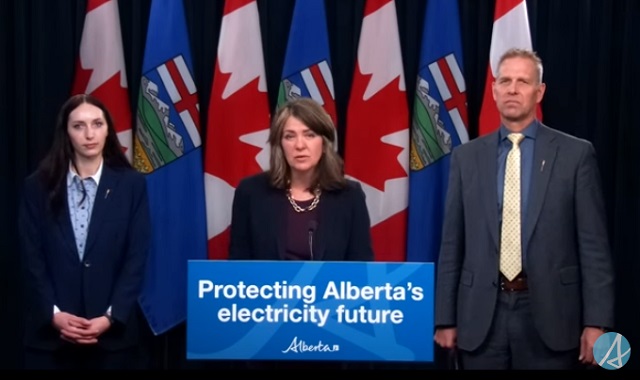
 Alberta2 days ago
Alberta2 days agoProvince to stop municipalities overcharging on utility bills
-

 Business19 hours ago
Business19 hours agoFederal government’s ‘fudget budget’ relies on fanciful assumptions of productivity growth
-
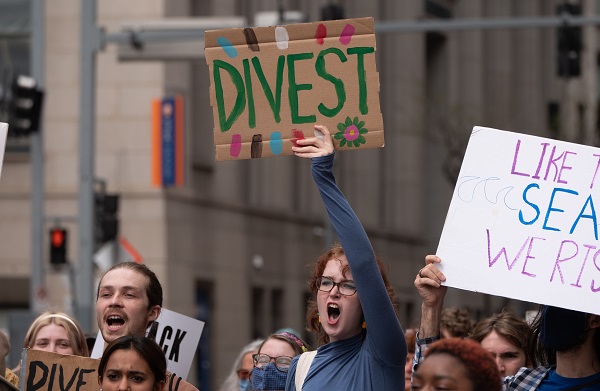
 Energy2 days ago
Energy2 days agoAnti-LNG activists have decided that they now actually care for LNG investors after years of calling to divest
-
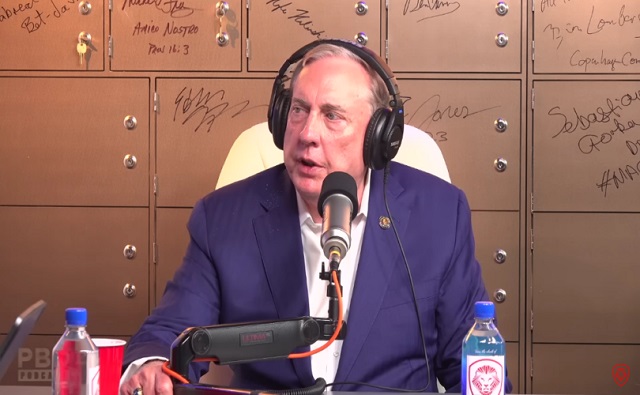
 conflict1 day ago
conflict1 day agoCol. Douglas Macgregor: US is ‘facing disaster’ as it funds overseas wars while bankrupt
-

 Alberta1 day ago
Alberta1 day agoAlberta government should create flat 8% personal and business income tax rate in Alberta
-
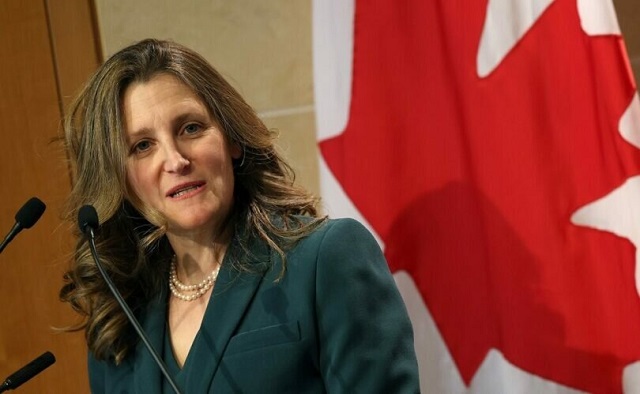
 Housing1 day ago
Housing1 day agoTrudeau’s 2024 budget could drive out investment as housing bubble continues









